‘Heavenly Creatures’: The crime that shocked New Zealand and unmasked a bestselling author
The film about the brutal murder of a woman by her daughter and her friend propelled Peter Jackson and Kate Winslet to prominence 30 years ago, rekindling public curiosity about the true identities of the killers
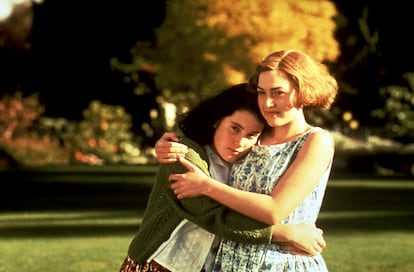
In 1994, Peter Jackson, then renowned for cult gore classics like Bad Taste (1987) and Braindead (1992), surprised audiences with a small yet striking film centered on the folie à deux of two teenagers whose intense and unhealthy devotion led to the brutal murder of one of the girl’s mother. Heavenly Creatures did not achieve significant box office success but was critically acclaimed and marked a pivotal moment in Jackson’s career, paving the way for his later triumphs with his J.R.R. Tolkien adaptations. The film also marked the screen debut of two future stars: Melanie Lynskey, later known for Two and a Half Men and Yellowjackets, and Kate Winslet, who would become one of the most esteemed actresses of her generation. Neither Lynskey nor Winslet knew the details of one of New Zealand’s darkest criminal cases when they signed on for the project.
Lynskey and Winslet played Pauline Parker and Juliet Hulme, two 15-year-old girls with starkly different backgrounds. Parker was of humble origins, the daughter of a fishmonger and a boarding house owner, a shy and socially awkward girl who always seemed to trying to hide her face in school photos. Hulme, in contrast, was confident and intelligent, living in an elegant home as the daughter of Canterbury College’s rector and a marriage counselor mother. Juliet’s upbringing was cosmopolitan, while Pauline had never left her small town. Their shared bond was rooted in past illnesses — Pauline’s osteomyelitis and Juliet’s tuberculosis — ailments that had kept them bedridden for long periods, during which they cultivated a rich inner world filled with characters of their own invention.
Their connection was immediate and intense. As their fascination for each other deepened, they distanced themselves from the outside world and fortified their relationship. Together, they replaced what they viewed as drab, ordinary lives with a vivid fantasy realm they called “the Fourth World,” a paradise they described as “a world without Christians.” In this universe, the stars of the era — such as opera singer Mario Lanza and actor-director Orson Welles — were revered as deities, while Pauline and Juliet took on the personas of “Deborah” and “Gina.” They were inseparable, with Pauline spending most of her days and many nights at Juliet’s home.
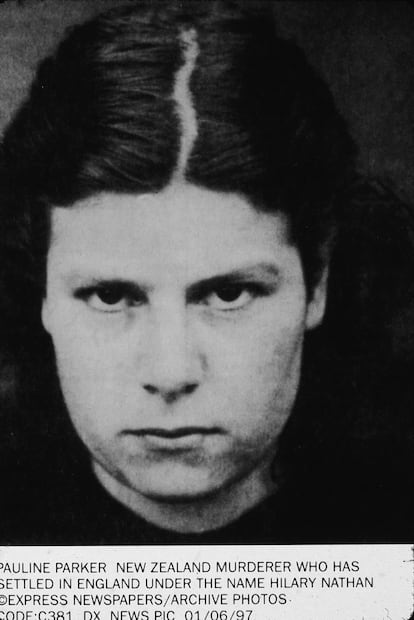
When Juliet’s tuberculosis relapsed and she was hospitalised for four months, they wrote to each other every day. They dreamed of becoming writers and moving to Hollywood. Their friendship thrived in isolation until Juliet’s parents announced their separation: her mother, who had a lover, planned to move to the United States, while her father intended to return to England, and Juliet was to be sent to South Africa to stay with her grandmother “for her health.” Juliet and Pauline’s first thought was to travel together, an idea that was swiftly rejected by both of their parents.
While neither set of parents entertained the notion of Pauline joining Juliet in Africa, the girls fixated their growing resentment on Honorah Parker, Pauline’s mother, who was particularly critical of their intense relationship. Alarmed by her daughter’s increasingly gaunt appearance and obsessive behavior, Honorah had even taken Pauline to a psychiatrist. The diagnosis: a “homosexual attachment” to Juliet. Pauline’s diary reflected her turbulent emotions: “Why could mother not die? Dozens of people are dying all the time, thousands, so why not mother, and father too.” Just 72 hours after that ominous entry, Honorah Parker was dead.
On June 22, 1954, Honorah agreed to an impromptu outing to Victoria Park, where they shared tea, scones, and a walk. As they moved through a secluded path, Pauline took a brick wrapped in a stocking from her handbag — brought from Juliet’s home — and struck her mother on the head 45 times. Juliet assisted by restraining Honorah to prevent her from escaping. They attacked her so violently that the brick broke in half. Bloodied and feigning distress distressed, the girls ran to summon help, claiming Honorah had fallen and hit her head on a stone. However, the injuries — her face unrecognizably battered by the blows — made their story hard to believe.

The investigation was swift. At Pauline’s home, police discovered her meticulously kept diaries: “Deborah [her nickname for Juliet] rang and we decided to use a brick in a stocking rather than a sandbag. We discussed the moider fully. I feel very keyed up as if I was planning a surprise party. So the next time I write in the diary mother will be dead. How odd, yet how pleasing,” one entry read.
The case gripped the nation. How could two seemingly ordinary teenagers commit such a heinous crime? Public opinion was sharply divided. Some sided with the prosecution’s depiction of them as “precocious, dirty-minded girls,” while others believed the defense’s argument that they were mentally ill and deserved compassion.
However, the meticulous planning evident in their diaries shattered the defense’s claims of insanity. “They are not incurably crazy, they are incurably bad,” argued the prosecutor. Throughout the trial, the girls maintained a provocative attitude, whispering and laughing with each other as though indifferent to the gravity of their situation. “They were very pleased with themselves,” noted Peter Graham in Anne Perry and the Murder of the Century, where he states that the girls believed that murder was simply a convenient solution to their problems.
The media drew parallels to the infamous case of Leopold and Loeb, the young murderers who inspired the Alfred Hitchcock movie Rope. On the stand, Pauline and Juliet claimed that their access to the “Fourth World” made them heavenly creatures, exempt from ordinary human laws.
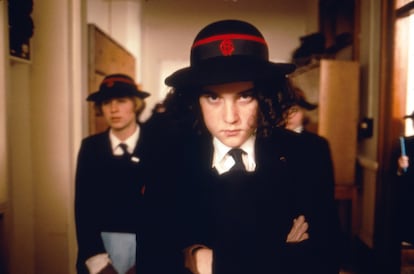
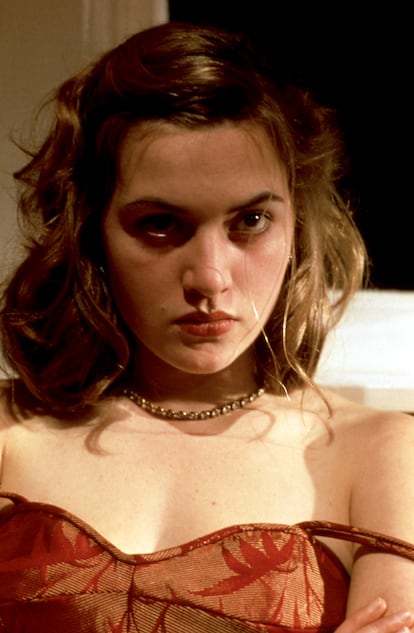
The jury needed less than half an hour to deliver a guilty verdict. Due to their age, they each served five years in prison. They were sent to separate prisons and were not allowed to have contact. They were released on condition that they never see each other again. Juliet was released first and left the country a few days later to join her mother in Britain. Pauline remained on probation until the mid-1980s and then disappeared.
For 40 years they remained invisible, but in 1994, Peter Jackson’s film revived interest in their gruesome story of friendship and death. Investigative journalists uncovered a startling revelation: Juliet Hulme had been hiding in plain sight. She had reinvented herself as Anne Perry, a celebrated and bestselling author known for her Victorian crime novels featuring detectives Thomas Pitt and William Monk.

Perry — or rather Juliet Hulme — was living a quiet life in Portmahomack, northeast Scotland, when she was identified as the infamous teenager from the 1954 murder. At the time, she was 60 years old. Not long after, NZ Woman’s Weekly located Pauline Parker, who was surprisingly just 560 miles away. Parker had changed her name and worked with horses. Both women had embraced Christianity and neither had married or had children.
While Pauline declined to speak with the press, her sister Wendy shared insights into her reclusive life: “She is a nun in her way. She’s living in solitude. She’s deeply religious. She leads a very unusual existence. She hasn’t got a TV or a radio [...] She’s a devout Roman Catholic and spends much of her time in prayer,” she said. “She has led a good life and is very remorseful for what she’s done.”
Unlike Pauline, Juliet/Perry was willing to discuss her past. According to her brother, when a journalist first contacted her with the revelation, she expressed relief, saying, “I’m glad everything has come to light. I have nothing to fear.”
Although Perry initially avoided interviews and dismissed Jackson’s film as “garbage” without watching it, she eventually broke her silence. In a 1998 interview with EL PAÍS, she recounted the shock of being exposed: “At that moment I thought it was all coming back again, that my life was going to be ruined forever. It was one of the worst moments of my existence.”
However, the revelation did not only did not harm her book sales, it made her even more popular. Until her death in 2023, Perry maintained that she had acted out of a sense of duty to prevent Pauline’s suicide. “I felt obliged to Pauline. She would kill herself, I was certain, and I would be responsible for her death if I did not accede to her wishes,” she told EL PAÍS. “I was very alone and lacked the strength to cope.”
This claim about Pauline’s suicidal tendencies was not recorded in any of thousands of court documents, and her sister also disputed it. Perry also insisted she had never seen Pauline since their release — a claim met with skepticism — and claimed that she could recall little from that time. She also denied that their relationship was romantic or sexual in nature.
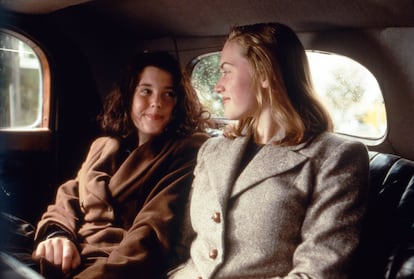
Anne Perry’s passing in 2023 prompted her brother, Jonathan Hulme, who had been her personal assistant for over two decades, to shed light on their past and her relationship with Pauline Parker, whom he described as “a bit of a dark, unresponsive character.” “I was her brother for 79 years and her personal assistant for 22 and I regard myself as being in a unique position to make a significant contribution — especially as we are coming up to the 70th anniversary of that infamous murder and trial,” he said. “She was a complex character and no doubt a talented writer. But there remained a streak of dishonesty and selfishness in her ... She did not regard herself as being psychotic or being mad, but it was pretty clear to me looking at it.”
Before reuniting with her family in England, Perry attempted to settle in the United States. “She went over to America, to LA. It was her lifelong dream that they [Juliet and Pauline] were going to go to Hollywood and be accepted and famous. It was an absolute fantasy, but my sister tried to make it real,” said Jonathan, who noted that his sister admitted that it was wrong to murder Honorah Parker and accepted her prison. But, he said: “I do not remember her, at any time, expressing much remorse.”
Sign up for our weekly newsletter to get more English-language news coverage from EL PAÍS USA Edition
Tu suscripción se está usando en otro dispositivo
¿Quieres añadir otro usuario a tu suscripción?
Si continúas leyendo en este dispositivo, no se podrá leer en el otro.
FlechaTu suscripción se está usando en otro dispositivo y solo puedes acceder a EL PAÍS desde un dispositivo a la vez.
Si quieres compartir tu cuenta, cambia tu suscripción a la modalidad Premium, así podrás añadir otro usuario. Cada uno accederá con su propia cuenta de email, lo que os permitirá personalizar vuestra experiencia en EL PAÍS.
¿Tienes una suscripción de empresa? Accede aquí para contratar más cuentas.
En el caso de no saber quién está usando tu cuenta, te recomendamos cambiar tu contraseña aquí.
Si decides continuar compartiendo tu cuenta, este mensaje se mostrará en tu dispositivo y en el de la otra persona que está usando tu cuenta de forma indefinida, afectando a tu experiencia de lectura. Puedes consultar aquí los términos y condiciones de la suscripción digital.









































